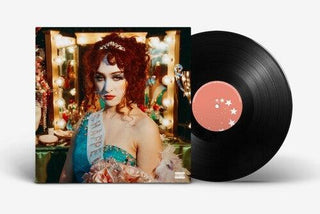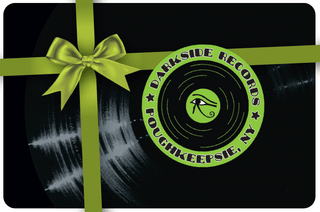Domenico Lafasciano- The Charm of the Lyre-Guitar

The lyre-guitar was a fascinating, upmarket instrument that originated in Paris. It's inventor, luthier Pierre-Charles Mareschal, dated it's creation to around 1780. It was very popular in the elite salons of Napoleonic era-Europe, between the late 18th and early 19th century. It's refined, elegant shape recalling the ancient Greek lyre, made it a much-vaunted status symbol among women, who believed it enhanced their grace and beauty. As well as being played by noblewomen, it was also used by musicians to accompany singers, including the French tenor Joseph Dominique Fabry-Garat and the Austrian baritone Johann Michael Vogl, a close friend of Franz Schubert. The lyre-guitar used on this recording comes from Domenico Lafasciano's private collection. It was built in Paris in 1806 by Henry Lejeune, part of an important dynasty of luthiers dating back to the 18th century. Lafasciano's lyre-guitar is an original and very rare instrument: it has only 12 frets, and they are made of gut like on the lute or baroque guitar, making it suitable for playing works from the early 19th-century guitar repertoire. It is a brilliant example of the transition between the 18th and 19th centuries, a period when guitarists were still playing instruments with five double or single courses of strings, as well as six-string models. It appears that the lyre-guitar, which had six single strings from the outset, gave a definitive push to the addition of the sixth string to the guitar. This album contains some lovely musical gems written in the early 19th century by guitar-playing composers who remain largely unknown today. The first French publications, including the pieces featured on this recording, all contained the words 'pour Lyre ou Guitare' or 'pour Guitare ou Lyre', indicating very clearly that the works could be performed on either a lyre-guitar ('Lyre') or a five- or six-string guitar ('Guitare'). Other information: - Recorded November 2023, Milan, Italy - Booklet in English contains liner notes by the artist and a biography - Lafasciano plays a lyre-guitar by Henry Lejeune (Paris, 1806) strung with Aquila Ambra 800 strings - The Italian liner notes are available for download at www. Brilliantclassics. com - An exclusive and fascinating instrument, the lyre-guitar was created in Paris by the luthier Pierre-Charles Mareschal, who claimed to have invented it around 1780. It shone in the noble salons of Europe during the Napoleonic Age, between the end of the 18th century and the first decades of the 19th century. - The lyre-guitar, with it's refined and elegant shape reminiscent of the ancient Greek lyre, was at that time a 'status symbol' instrument much loved by the fairer sex, as it enhanced their grace and beauty. It was often played by noble ladies, but also by musicians who used it to accompany singing, such as the Austrian baritone Johann Michael Vogl, a great friend of Franz Schubert. Even the great guitarist Mauro Giuliani performed a few times with this instrument. - This new recording presents works written for Lyre-guitar by French composers Charles Doisy (?-1807), Alexandre Alfred Rougeon-Beauclair (?-1829), Pierre Joseph Plouvier (1750-1825) and Jean-Antoine Meissonnier (1783-1857): a feast of lighthearted, charming and enchanting music! - Domenico Lafasciano is one of the very few lyre-guitar concert performers of today. Graduated with top marks at Padua Conservatory, he perfected himself with Alirio Diaz, Alexandre Lagoya, Siegfried Behrend and Jose Luis Lopategui. He met with Andres Segovia, who let him play his own guitar, and with John W. Duarte, who dedicated one of his compositions to him.
The lyre-guitar was a fascinating, upmarket instrument that originated in Paris. It's inventor, luthier Pierre-Charles Mareschal, dated it's creation to around 1780. It was very popular in the elite salons of Napoleonic era-Europe, between the late 18th and early 19th century. It's refined, elegant shape recalling the ancient Greek lyre, made it a much-vaunted status symbol among women, who believed it enhanced their grace and beauty. As well as being played by noblewomen, it was also used by musicians to accompany singers, including the French tenor Joseph Dominique Fabry-Garat and the Austrian baritone Johann Michael Vogl, a close friend of Franz Schubert. The lyre-guitar used on this recording comes from Domenico Lafasciano's private collection. It was built in Paris in 1806 by Henry Lejeune, part of an important dynasty of luthiers dating back to the 18th century. Lafasciano's lyre-guitar is an original and very rare instrument: it has only 12 frets, and they are made of gut like on the lute or baroque guitar, making it suitable for playing works from the early 19th-century guitar repertoire. It is a brilliant example of the transition between the 18th and 19th centuries, a period when guitarists were still playing instruments with five double or single courses of strings, as well as six-string models. It appears that the lyre-guitar, which had six single strings from the outset, gave a definitive push to the addition of the sixth string to the guitar. This album contains some lovely musical gems written in the early 19th century by guitar-playing composers who remain largely unknown today. The first French publications, including the pieces featured on this recording, all contained the words 'pour Lyre ou Guitare' or 'pour Guitare ou Lyre', indicating very clearly that the works could be performed on either a lyre-guitar ('Lyre') or a five- or six-string guitar ('Guitare'). Other information: - Recorded November 2023, Milan, Italy - Booklet in English contains liner notes by the artist and a biography - Lafasciano plays a lyre-guitar by Henry Lejeune (Paris, 1806) strung with Aquila Ambra 800 strings - The Italian liner notes are available for download at www. Brilliantclassics. com - An exclusive and fascinating instrument, the lyre-guitar was created in Paris by the luthier Pierre-Charles Mareschal, who claimed to have invented it around 1780. It shone in the noble salons of Europe during the Napoleonic Age, between the end of the 18th century and the first decades of the 19th century. - The lyre-guitar, with it's refined and elegant shape reminiscent of the ancient Greek lyre, was at that time a 'status symbol' instrument much loved by the fairer sex, as it enhanced their grace and beauty. It was often played by noble ladies, but also by musicians who used it to accompany singing, such as the Austrian baritone Johann Michael Vogl, a great friend of Franz Schubert. Even the great guitarist Mauro Giuliani performed a few times with this instrument. - This new recording presents works written for Lyre-guitar by French composers Charles Doisy (?-1807), Alexandre Alfred Rougeon-Beauclair (?-1829), Pierre Joseph Plouvier (1750-1825) and Jean-Antoine Meissonnier (1783-1857): a feast of lighthearted, charming and enchanting music! - Domenico Lafasciano is one of the very few lyre-guitar concert performers of today. Graduated with top marks at Padua Conservatory, he perfected himself with Alirio Diaz, Alexandre Lagoya, Siegfried Behrend and Jose Luis Lopategui. He met with Andres Segovia, who let him play his own guitar, and with John W. Duarte, who dedicated one of his compositions to him.




